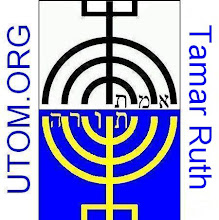I came across this article online in a newspaper called The Forward. It expresses my feelings pretty well so I thought I would share it here. I was surprised to see I actually knew the author as well. My husband, kids and I attended his shul on occassion. Shabbat Shalom everyone!
Published Wednesday, April 7, 2010
Jewish Education Begins at Home
Opinion
Passover is over this year, but I can’t stop thinking about the educational brilliance of the holiday. Passover is high-impact and low-cost. It’s family-based and grass-roots. And almost like magic, Passover needs no professional support: If all the rabbis, educators, synagogue presidents and federation fundraisers got lost wandering in the desert for 40 years, Jews across the world would still celebrate Passover. All Jewish education programs should be more like Passover.Jewish education in America is at a crossroads. No generation of Jews has ever seen such a flourishing of learning opportunities: day schools, charter schools, supplementary schools, camps, travel encounters and, more recently, tech-based tools. We have put our best minds and no small amount of money into Jewish education, yet still not enough Jews are leading Jewish lives. What’s going wrong?
Passover may have the answer. Jewish education is failing because we have abandoned the quintessential Jewish pedagogy: family-based learning. With only a Haggadah and memories from childhood, parents and grandparents use the tried-and-true methods of the four questions, the four children and story-telling to transmit Jewish tradition with no Jewish professionals in sight.
Unfortunately, flagship Jewish education programs — day schools, camps and Birthright trips — send a bad message to parents: “Just give us your kids, and let us professionals turn them into Jews!” And the high cost of flagship programs means that they are unsustainable without massive communal investment.
There is another way. The same studies that show the incremental impact of high-cost programs also show that what happens at home is a primary long-term indicator of future Jewish life. It makes sense: If parents are serious about passing along the tradition, it will matter to the kids. Surprisingly, such wisdom has been right before our eyes all the time. The Sh’ma prayer commands us: v’shinantem levanekha, “impress [these teachings] upon your children” (Deuteronomy 6:7). Many Jews know the prayer, but too few of us heed its call to pass along Jewish tradition directly to our children and grandchildren. Instead, we ask professionals to do all the work.
Telling parents that professionals can teach Judaism to their kids better than they can is wrong. Learning to be Jewish is not like learning math or sports or ballet. Jewish tradition is passed on l’dor vador — from generation to generation — by living it out.
Maybe it’s time to slay some sacred cows of Jewish education: More and better-trained Jewish professionals and more financial resources will not solve the education crisis. The solution is to put families back at the center of Jewish education.
If parents are not serious about Jewish life at home, then even the best $30,000-a-year day school is likely to be a poor investment. We need to direct our money and our creativity toward helping parents and grandparents take back their God-given responsibility to be the transmitters of Jewish tradition.
That’s why I’m experimenting with a family-based supplementary education program in central New Jersey called Yerusha. It costs $30 a month per child. We’ve found that with some educational guidance in the form of curricula and resources, parents and grandparents absolutely love teaching their own kids and their friends’ kids about Judaism (and the kids love it, too). By taking charge of transmitting Jewish tradition to their kids, parents themselves become curious learners and more confident Jews. The impact of empowering parents should not be surprising, given how successful Passover is.
There are many other family-based education programs, but there aren’t enough. Why can’t Jewish camping be more family-based? Why can’t the bar/bat mitzvah process be more family-based? Why can’t we put fewer resources into workbooks for kids and more resources into teaching tools for parents?
There are many barriers to family-based education. Parents feel ignorant and believe that only rabbis or educators can teach Judaism to their kids. They are over-worked and have no extra time. The drop-off syndrome is deeply ingrained. Nuclear families, rather than extended families, are the norm, which means that few grandparents are around to help.
Let’s tackle these barriers by putting at least as much effort into raising Jewish families as we do into raising Jewish funds. Let’s listen to the educational wisdom of Passover, the most celebrated Jewish holiday. Let’s stop encouraging hands-off Judaism, and start encouraging families to get their hands dirty with the daily work of transmitting Jewish tradition. Our Jewish lives will be richer for it, our Jewish lives will cost less, and our kids will love and live Judaism a lot more.
Rabbi Justus Baird is director of the Center for Multifaith Education at Auburn Theological Seminary in New York.

No comments:
Post a Comment